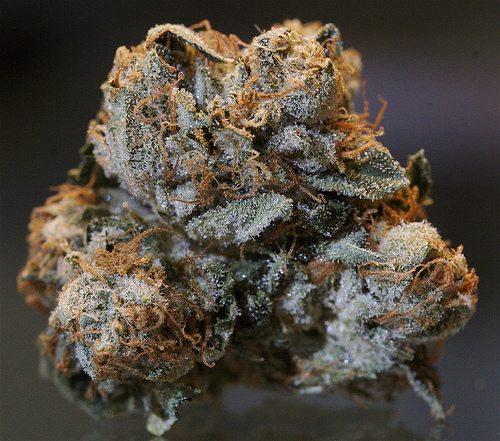Last week the American Academy of Pediatrics came out against marijuana legalization.
“[S]tudies have shown that adolescents who report regular marijuana use perform more poorly on tests of working memory, visual scanning, cognitive flexibility, and learning. Furthermore, the number of episodes of lifetime marijuana use reported by subjects correlated with overall lower cognitive functioning.”
In its statement on marijuana, the AAP took to task the notion that marijuana is somehow safer than alcohol or tobacco, writing,
“One argument in support of marijuana legalization is that alcohol and tobacco cause more harm to society, in terms of financial and health costs, than marijuana. This argument is based on their belief that tight controls on the use, possession, and sale of what some consider a benign substance, such as marijuana, are inconsistent with policies that permit the legal use of substances such as alcohol and tobacco, which cause far more harm to individuals and society. Few would argue that the use of tobacco and underage or excessive use of alcohol are not harmful. However, the harmful effects of marijuana are rarely included in discussions about legalization of recreational and medical marijuana use, despite the emerging and convincing data on the neurodevelopmental consequences of marijuana and its potential to for [sic] addiction. ….
“At this time, there is no published research to suggest benefit of marijuana use by children and adolescents. In the context of limited but clear evidence showing harm or potential harm from marijuana use by adolescents, formal recommendations for ‘medical marijuana’ use by adolescents are contrary to current evidence.”
The AAP supports ongoing research on marijuana and its uses and side-effects.
This announcement from the AAP comes as more news stories surface about the negative effects of marijuana–especially on children.
In Colorado and Washington, the Associated Press reports marijuana-related calls to poison control have spiked.
“New year-end data being presented to Colorado’s legislature this week show that the Rocky Mountain Poison and Drug Center received 151 calls for marijuana exposure last year, the first year of retail recreational pot sales. That was up from 88 calls in 2013 and 61 in 2012, the year voters legalized pot.
“Calls to the Washington Poison Center for marijuana exposures jumped by more than half, from 158 in 2013 to 246 last year.
“Public health experts say they are especially concerned about young children accidentally eating marijuana edibles. Calls involving children nearly doubled in both states: to 48 in Washington involving children 12 or under, and to 45 in Colorado involving children 8 or under.”
In Oklahoma last week, police reported a man gave his girlfriend’s 10-month-old baby synthetic marijuana to “get rid of it.” Paramedics rushed the child to the hospital after she was found unresponsive.
As we keep saying, marijuana may be many things, but “harmless” simply is not one of them.




